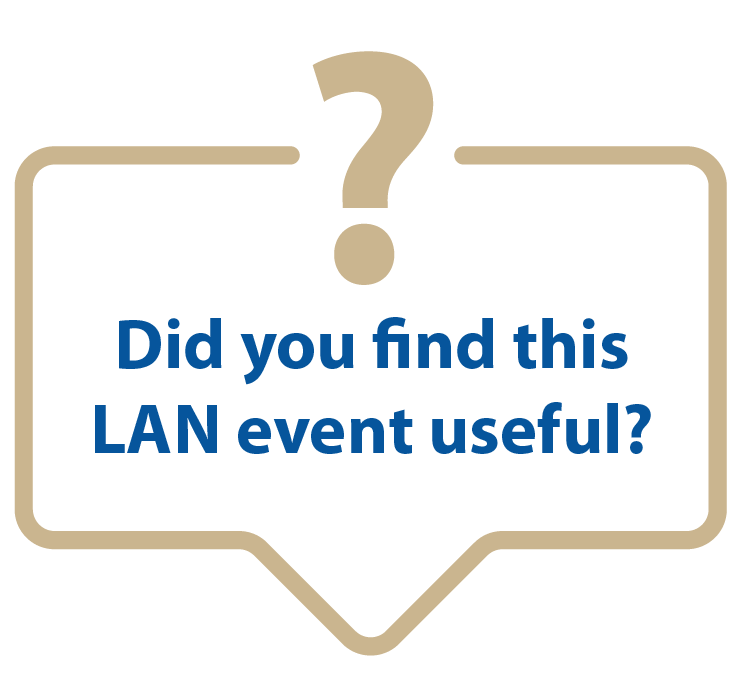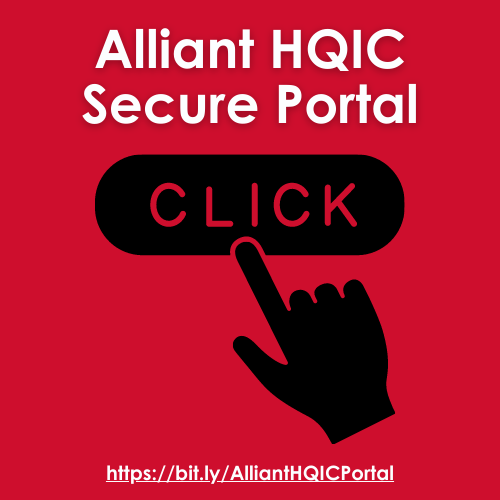|
|
|
|
This monthly newsletter highlights the latest insights, resources, and evidence-based best practices.
Our hope is that this newsletter makes it easy for you to stay on top of trends and allows you to provide the best possible care for those you work with and serve.
|
|
|

Listening Session for Patient and Healthcare Worker Safety
Join the U.S. Department of Health and Human Services (HHS), including leaders from the Agency for Healthcare Research and Quality (AHRQ), the Centers for Disease Control and Prevention (CDC), the Centers for Medicare & Medicaid Services (CMS) and the Food and Drug Administration (FDA), on November 14 for a listening session on patient and health care worker safety. Register Here
FY 2023 IPPS Final Rule
This final rule will revise the Medicare hospital inpatient prospective payment systems (IPPS) for operating and capital-related costs of acute care hospitals; make changes relating to Medicare graduate medical education for teaching hospitals; update the payment policies and the annual payment rates for the Medicare prospective payment system for inpatient hospital services provided by long-term care hospitals. Read the Final Rule
HHS Promotes Health Equity in Rural Care Access Through Outpatient Hospital and Surgical Center Payment System Final Rule
The HHS is improving access to health care—including behavioral health services—in rural communities. Reflecting the Biden-Harris administration’s commitments to advance health equity and to improve the nation’s behavioral health services, CMS is releasing the calendar year 2023 Hospital Outpatient Prospective Payment System (OPPS) and Ambulatory Surgical Center (ASC) Payment System final rule with comment period. This final rule will allow critical access hospitals (CAHs) and small rural hospitals to convert to a rural emergency hospital (REH), which may be a more sustainable option for rural hospitals facing closure and supports access to care in rural and underserved communities. An REH is a new Medicare provider type that furnishes outpatient services, emergency services and observation care. In this rule, Medicare will also pay hospital outpatient departments to provide remote behavioral health services to people at home, which will improve access to care in rural communities and promote health equity. Read More
|
Upcoming Learning and Action Network (LAN) Events
Antibiotic Stewardship: Quick Wins for Improving Duration of Therapy (hosted by IPRO HQIC)
Tuesday, November 8, 2022, at 1 p.m. ET
Antibiotic stewardship (AS) remains a national priority aimed at optimizing antibiotic use to effectively treat infections, protect patients from harms caused by unnecessary use and combat antibiotic resistance. This event will feature national antibiotic use and duration of therapy (DOT) trending data, strategies to address AS challenges, examples of best practices to improve antibiotic discharge prescribing and a hospital’s success with engaging leaders, providers and frontline staff in a hospital-wide initiative to improve DOT and outcomes. The learning objectives include:
- Describe CDC AS Core Elements and the current status of AS programs in acute care hospitals.
- Discuss national trending data on antibiotic use and DOT.
- Review opportunities to improve prescribing practices and decrease antibiotic DOT at the time of patient discharge, including handoff to the next level of care.
- Explain DOT evidence-based strategies and associated outcomes to enhance patient safety.
- Hear about a hospital’s challenges and successes with implementing practical electronic health record (EHR) solutions and other data-driven strategies to optimize DOT.
CAUTI Prevention in Action: Strategies from the Field
Recorded on October 27
This presentation featured real-world examples of effective CAUTI prevention strategies shared by Alaska Native Medical Center and Campbell County Health infection prevention. View the Presentation and Video
View All Upcoming Events Here

If Yes, Click Below.
Click here if you attended the June LAN event and were able to "use tomorrow" what you heard during the webinar.
View All Previous LAN Event Recordings
Community of Practice (CoP) Calls
CMS hosts CoP calls on the second Thursday of each month at 1 p.m. ET | 12 p.m. CT | 11 a.m. MT | 10 a.m. PT. The calls are open to all Alliant HQIC hospitals.
Patient Safety Culture and Leadership: Reducing All-Cause Harm and Achieving Five-Star Rating
Thursday, November 10
CMS releases annual overall hospital quality star ratings, which include clinical metrics for hospitals. Hospitals that achieve better outcomes and higher ratings tend to foster a culture of patient safety and leadership in their organizations. This webinar will provide an overview of the star ratings. You will also hear from a risk, compliance and quality director, who will discuss his hospital’s quality dashboard that mirrors the dimensions of the quality measures in the hospital star ratings. In addition, Don Avery, president and CEO of Fairview Park Hospital (Georgia), will discuss how his hospital team successfully reached a five-star rating based on safety across the board, daily leadership huddles and driving accountability.
Register Here
Monthly Office Hours-IP Chat
 IP Chats are quarterly networking events to build knowledge, share experience and provide support for hospital infection preventionists. The Office Hours-IP Chats are hosted by Amy Ward, MS, BSN, RN, CIC, FAPIC. IP Chats are quarterly networking events to build knowledge, share experience and provide support for hospital infection preventionists. The Office Hours-IP Chats are hosted by Amy Ward, MS, BSN, RN, CIC, FAPIC.
The next session is scheduled for:
If you would like to schedule a one-on-one meeting with Amy, please let your quality advisor know. Questions? Contact Amy Ward at amy.ward@allianthealth.org.
|
 Alliant HQIC Online Portal Alliant HQIC Online Portal
Access the Alliant HQIC portal to view your assessments and measurement data, and chat with other HQIC-enrolled hospitals to share best practices, barriers and solutions. Download Portal Instructions to Get Started
Behavioral Health/Opioid Stewardship
AHRQ Releases New Opioid-Related Infographics
The AHRQ created two new infographics with helpful information about opioid prescriptions among adults and seniors. Check them out at the links below:
People Matter, Words Matter
Words can transmit stigma. The American Hospital Association (AHA), together with behavioral health and language experts from member hospitals and partner organizations, released a series of downloadable posters that may be used to help health care staff adopt patient-centered, respectful language in various patient care settings. Download Posters
Adverse Drug Events
Study: Trajectories of Prescription Opioid Dose and Risk of Opioid-Related Adverse Events Among Older Medicare Beneficiaries
Despite the rising number of older adults with medical encounters for opioid misuse, dependence and poisoning, little is known about patterns of prescription opioid dose and their association with risk for opioid-related adverse events (ORAEs) in older patients. A study published by the National Center for Biotechnology Information aims to compare trajectories of prescribed opioid doses in six months preceding an incident ORAE for cases and a matched control group of older patients with chronic non-cancer pain. Read More
Antibiotic Stewardship
New AHRQ Toolkit Helps Ambulatory Care Practices Improve Antibiotic Use
A new AHRQ toolkit helps ambulatory care practices improve antibiotic use by applying a novel framework that simplifies antibiotic prescribing. The toolkit employs AHRQ’s Four Moments of Antibiotic Decision Making, which helps improve prescribing by distilling the process into four distinct points, making it easier for prescribers to make informed decisions. It also has resources for using a stewardship program, communicating about prescribing and applying best practices for common infectious diseases. Read More
NHSN
NHSN Survival Guide
Alliant Health Solutions created a National Healthcare Safety Network (NHSN) survival guide. See pages 4-6 of the guide for the HAI Data Quality Checklist. Download Survival Guide
Hospital-Acquired Infections (HAIs) and Infection Prevention
Video: Guidance on MRSA and C. diff Lab ID Reporting
Need guidance on the MRSA and C. diff Lab ID reporting? Check out the 20-minute presentation by Alliant’s Infection Prevention Technical Advisor. Watch Presentation
Readmissions/Care Transitions
Offering Chronic Disease Self-Management Education in Rural Areas
The need for evidence-based programs is great among rural-residing older adults who have higher poverty rates and poorer health than the urban elderly and frequently experience barriers to health care access. According to the Profile of Older Americans: 2014, individuals aged 65 and over constitute approximately 14.1% of the American population, with 19% living in non-metropolitan designated areas. Read Article
Reexamining Quality Measures in Dialysis Care
The National Kidney Foundation (NKF) and the Kidney Disease Outcomes Quality Initiative held a scientific workshop on patient-centered quality measures for dialysis care. Quality measures currently used in dialysis care emphasize laboratory test results and outcomes related to utilization. As this system and other related quality systems mature, it is vital to ensure that quality measures are patient-centered to motivate the best possible care for people dependent on dialysis while preserving individual patient choices and emphasizing factors most important to their well-being. Read More
Health Equity
Social and Political Determinates of Health and Equity
Hospitals across the nation are working to address social determinants of health and improve health equity. But a bigger question is what are the root causes, and how do we influence action? To understand this, we should look at historical policies and decisions leading to disparities. Learn more about upstream determinates for actionable solutions. For more information, read What Are Political Determinants of Health and Do They Differ from SDOH? and The Political Determinates of Health.
Improving Health Equity
The CMS Office of Minority Health recognizes that health literacy and health equity are related concepts. Health literacy principles can be used to advance health equity. Accessing and understanding information allows individuals to act on it, but they are more likely to accept information that incorporates health equity principles. Taken together, information can be clear and more inclusive.
Health literacy is a priority area in the CMS Framework for Health Equity. Nearly 9% of the population are individuals with limited English proficiency, and nearly 36% have low health literacy. Research shows that individuals with limited English proficiency and low health literacy report poor health status nearly twice as much as individuals that do not have these barriers. Insurance status has also been shown to be correlated with health literacy status, as individuals with Medicaid have been shown to have an increased risk of low health literacy. Failure to address health literacy, among other cultural and linguistic factors, can result in patient safety and adverse events, including diagnostic errors, missed screenings and inappropriate care transitions.
Through their Coverage to Care initiative, CMS offers a variety of resources to help people understand their health coverage and connect to the primary care and preventive services that are best for them. Learn More
|
Latest NCRN Resource Reminds Us That Grownups Need Vaccines Too
Alliant Health Solutions is a strategic partner in the Morehouse School of Medicine's National COVID Resiliency Network (NCRN). As we move through flu season, please remember to assess all patients for every immunization. Alliant developed a flyer to remind providers and patients that grownups need vaccines too. Download Flyer
|
Best Practices Corner
AdventHealth Gordon Named an Advanced Primary Treatment Stroke Center by Georgia Department of Public Health
AdventHealth Gordon, located in Calhoun, Georgia, has been designated an Advanced Primary Treatment Stroke Center by the Georgia Department of Public Health (DPH) Office of EMS and Trauma. AdventHealth Gordon is now on the Specialty Care Center list as a primary treatment stroke center on the DPH website and was commended for its excellence in stroke care. Read More
|
Success Stories
Alabama Hospital Improves Process and Outcomes with Critical Assessment Team (CAT)
Regional Medical Center (RMC) is a 338-bed hospital located in Anniston, Alabama, about 60 miles east of Birmingham.
 |
| Regional Medical Center (RMC) |
The critical response team at RMC consisted of an ICU nurse and a respiratory therapist who were responsible for stabilizing patients as quickly as possible within 30 minutes of the overhead page. The average time per month was 18.5 hours responding to code blues outside of the ICU and 31 hours per month responding to critical access team (CAT) calls while still caring for their patient load.
In November 2021, RMC recognized the need for early intervention and rolled out a pilot with a proactive approach and the motto, “Catch the Spark before the Fire.” A CAT was designated, and an algorithm provided warning signs for a decompensating patient. Staff was encouraged to call a four-digit number routed to the CAT cell phone. Other duties of the ICU nurse and respiratory therapist included:
- Proactively round on patients to review documentation, lab changes and vital sign changes on high acuity patients
- Provide critical care support to medical floors, such as removing CVLs, hard start IVs and hard stick ABGs
- Provide education to staff, including features of a defibrillator, to better document during the code
- Mentor floor nurses and respiratory staff
In six months, code blues decreased by approximately 95%, and CAT calls decreased by approximately 62% (excluding COVID patients) house-wide. In addition, an average of 9.4 hours was spent at the patient’s bedside. Other key tenets contributing to the success included:
- Breaking the stigma of calling for help
- Customer service mentality
- Overall confidence in patent care with extra support
Alliant HQIC recognizes RMC Health System for its continued dedication and commitment to improving patient safety and quality of patient care.
|
|
|
Connect with us!
    Click here if you'd like to share your corporate profiles with us and we'll connect with you!
Click here if you'd like to share your corporate profiles with us and we'll connect with you!
|
| |
Hospital Quality Improvement Project Collaborators


|
| |
For more information about Alliant Health Solutions, visit the website: www.allianthealth.org
For questions or information about free technical assistance, please contact:
Share this email with a friend or colleague:  
|
|
|
|
|